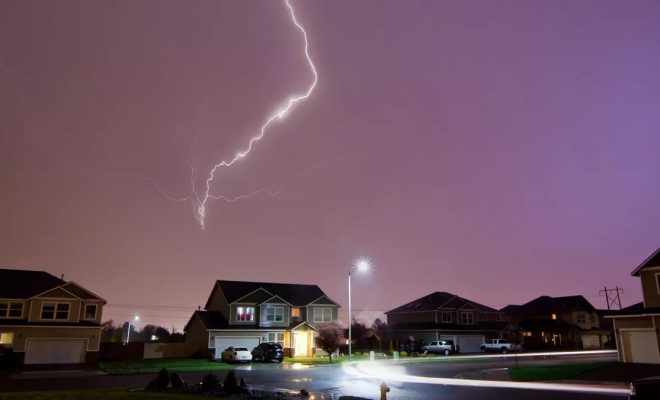How to Avoid Storm and Lightning Damage?

Although a storm usually involves nothing more than spending the night at home, it shouldn’t be taken lightly. 53% of household damage is weather-related, and in the past few years, a huge sum was disbursed in lightning-related insurance claims. Luckily, today, you can protect your home from storm damage.
- Structure
Lightning can cause damage to the structure and power surges that can destroy electrical equipment and even cause a fire. Installing surge protectors, in addition to unplugging electronic devices, will guarantee you some protection.
However, if you think you are in a high-risk area, it is worth consulting with a lightning protection company, as they can install a system to direct the lightning strike to the ground without causing damage.
To avoid water damage, check the roof frequently for holes or broken tiles and make sure the drain is not plugged or damaged. If there are any fire and water damage, fix it as soon as possible.
- Doors and Windows
They are the weakest parts of your house, so secure them before every storm and have shutters that you can firmly close.
However, do not put adhesive tape on the windows. It does not help and can create larger and more dangerous glass chips if the windows are broken. If you want to protect your windows, consider exchanging them for more resistant and shockproof glasses.
- Garden
Your garden is full of possible projectiles. First, check the trees: if any can fall or lose some branches, get rid of them. If you are not sure, call a gardener. When the wind blows up, be sure to store all your garden furniture inside or tie them securely.
If you are in an area prone to flooding, it would still be wise to redesign the garden. Contact a landscaper to find out if the garden should be remodeled to prevent water from flooding your home.
Check whether your insurance includes lightning strikes as coverage of the continent (building). You can also check it in the insurance of the neighborhood community since, generally, home insurance always includes coverage in the event of a lightning strike.


